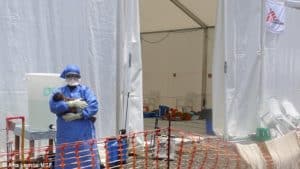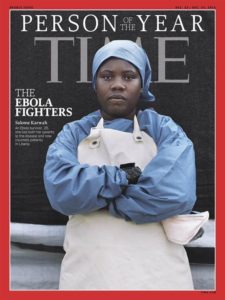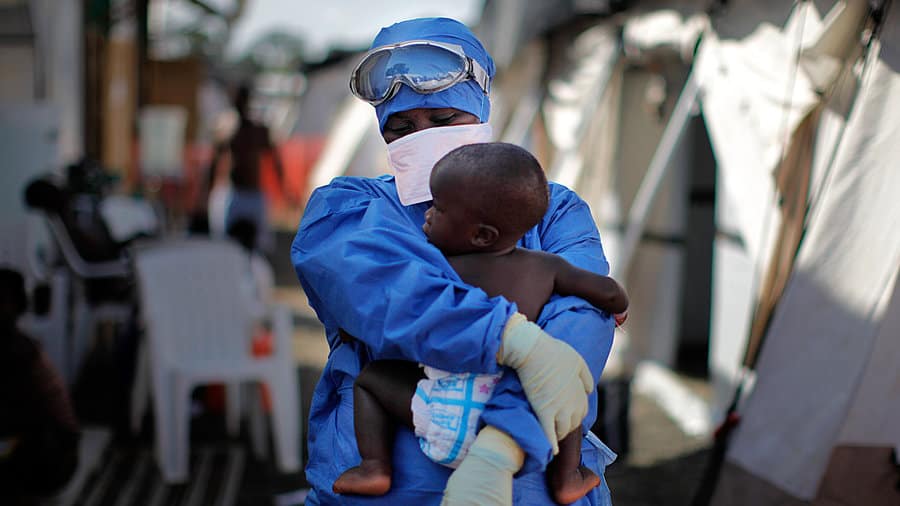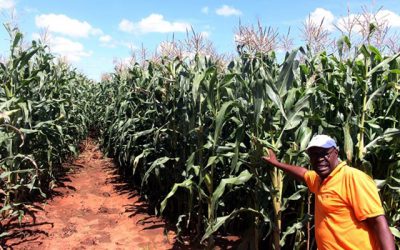“Not how long but how well you lived is the main thing” – Seneca
Salome Karwah only lived 28 years, but her name must never be erased from the memories of all who value good quality life, for it was all she sought to entrench in her home country of Liberia.
When the Ebola virus broke out in 2014 and eventually killed 11, 310 people, including her father, mother, brothers, uncles, aunts, cousins and a niece, Salome survived and dedicated her life to working as a nursing assistant with Medecins Sans Frontieres (Doctors without Borders), treating elderly people and nursing feverish babies. In her own words, “If a patient doesn’t want to eat, I encourage them to eat. If they are weak and are unable to bathe on their own, I help to bathe them. I help them with all my might because I understand the experience—I’ve been through the very same thing”.

Salome Karwah at work with Medecins Sans Frontieres. Courtesy: MSF
Salome’s role as a mental health counsellor proved pivotal to the success of the fight against the virus, as she exuded deep empathy and always gave a smile. When the world was afraid to approach Liberia, Salome stood in front of local and international media to speak about the challenges faced in combating the disease. She would eventually be named one of TIME’s Persons of the Year 2014.

Salome on the cover of TIME magazine. Courtesy: TIME
After the virus was successfully combated, everything returned to normal until Salome had a son on February 17, 2017 by caesarean section. It is reported that within hours of returning home, she begun to convulse and foam at the mouth and was eventually rushed back to the hospital. Because of the stigma of the virus, no one would touch her or give her critical medication due to her bodily fluids for more than three hours. Salome was left alone to die. It is shameful to note that the same failed healthcare system which she worked to save is the one which let her down. To have lost everything to the Ebola virus only to die due to its stigma, is completely beyond imagination. May her soul rest in peace.
Future Africa is saddened by the loss of such a brave young African citizen who gave her all to save her country. We know that there are millions of others across Africa who are being let down every single day by the same countries to which they pledge their allegiance. It is a responsibility for the living to respect the memory of the departed and work conscientiously to transform our systems. Every life lost for a preventable cause is one life too many.
Read Salome’s personal story here: http://www.doctorswithoutborders.org/article/surviving-ebola-then-helping-others-fight-it
Future Africa is a pan-African leadership organization founded to enable long-term political and economic stability in Africa by entrenching a robust system of citizen collaboration with governments, and preparing future generations of high impact leaders for the public sector.
www.futureafrica.net




